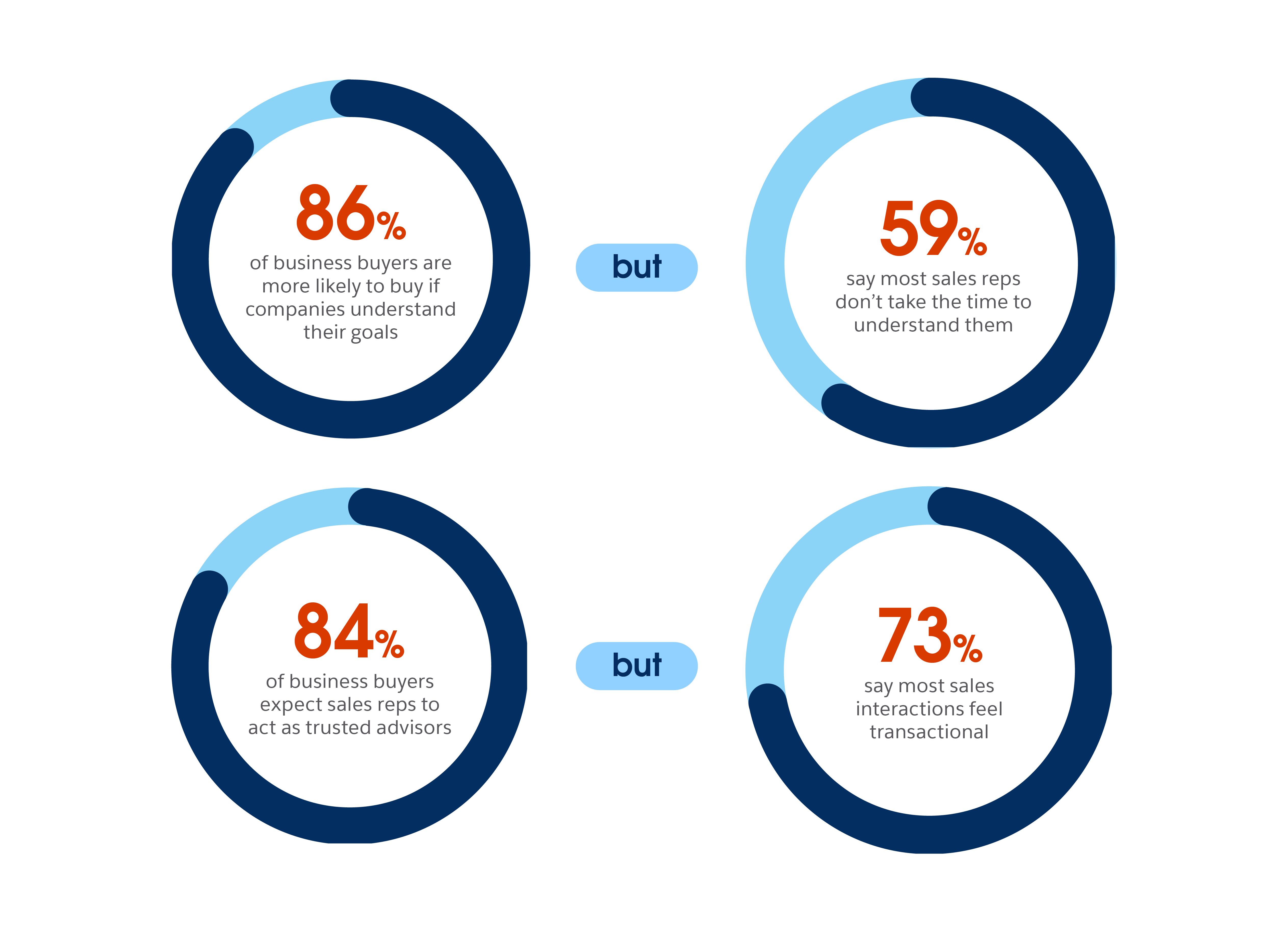What Are Customer Expectations, and How Have They Changed?
Customer expectations hit all-time highs.
Time to read: 3 minutes
By definition, customer expectations are any set of behaviors or actions that individuals anticipate when interacting with a company. Historically, customers have expected basics like quality service and fair pricing — but modern customers have much higher expectations, such as proactive service, personalized interactions, and connected experiences across digital channels.
To better understand how customer expectations are changing, Salesforce Research surveyed 14,300 consumers and business buyers globally. In this research, “customers” is an aggregate of both consumer and business buyer responses. These findings, published in the sixth edition of the “State of the Connected Customer” report, give an in-depth look at:
- How economic shifts have reshaped customer expectations and behaviors
- The changing ways that customers engage with companies across the buying lifecycle
- Customer sentiments around new technologies like generative artificial intelligence (AI)
For starters, the research found that 80% of customers now consider the experience a company provides to be as important as its products and services.
As disruptive companies leverage breakthroughs in cloud, mobile, social, and artificial intelligence technology to deliver personalized, valuable, and immediate experiences, customers have more choices than ever. As a result, they grow to expect this superior experience from any business they engage with.

Understanding new customer expectations
1. Customers expect connected journeys: Break down your business silos.
- 79% of customers expect consistent interactions across departments, yet 55% say it generally feels like they're communicating with separate departments rather than one company.
- 56% of customers say they often have to repeat or re-explain information to different representations.
2. Customers expect personalization: Customize everything.
- 73% of customers expect better personalization as technology advances.
- 65% of customers expect companies to adapt to their changing needs and preferences, but 61% of customers say most companies treat them as a number.
- 80% of customers say the experience a company provides is as important as its products and services.
3. Customers expect AI safeugards. Prioritize an ethical AI strategy.
- 74% of customers are concerned about the unethical use of AI.
- 80% of customers say it's important for a human to validate the output of AI.
- 68% of customers say advances in AI make it more important for companies to be trustworthy.
4. Customers expect data protection: Make trust your priority.
- 79% of customers say they're increasingly protective of their personal data.
- 71% of customers say they're more likely trust a company with personal data if its use is clearly explained.
- 51% of customers say most companies don't use their personal data in ways that benefit them.
Read more about customer trust.
Customers expect great experiences but reality falls short

57%
Only 57% of customers trust companies to use AI ethically.
Business buyers’ expectations mirror consumer expectations for company interactions

Why exceeding customer expectations is critical

Research
State of the Connected Customer

Guide
The Transformation Playbook
More Resources

Research

Article

Solution


